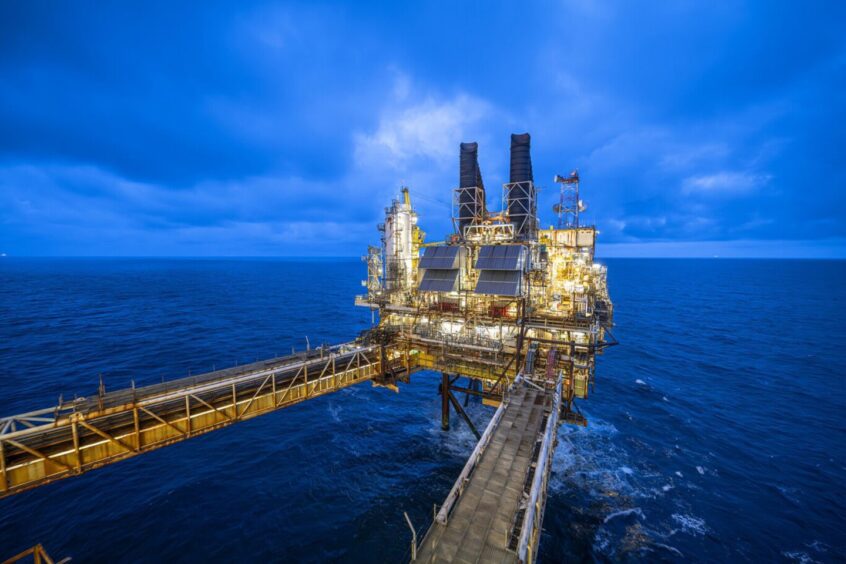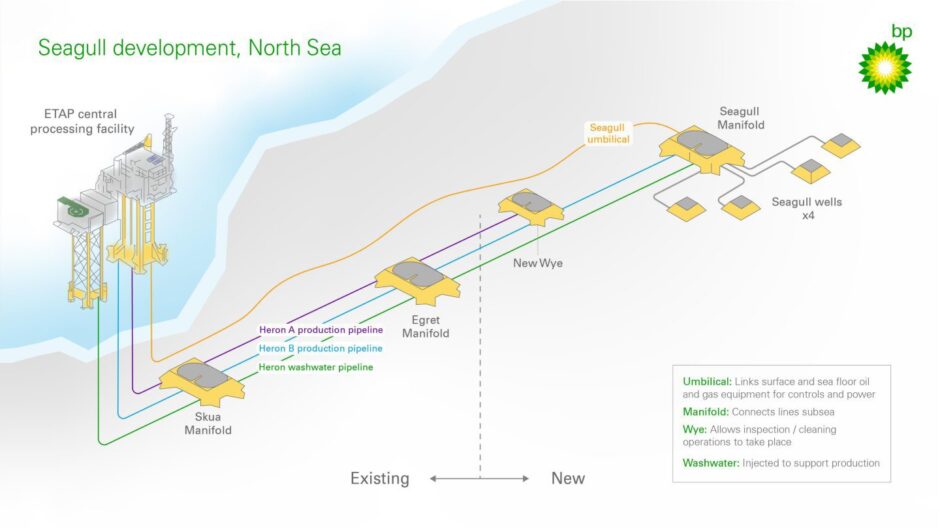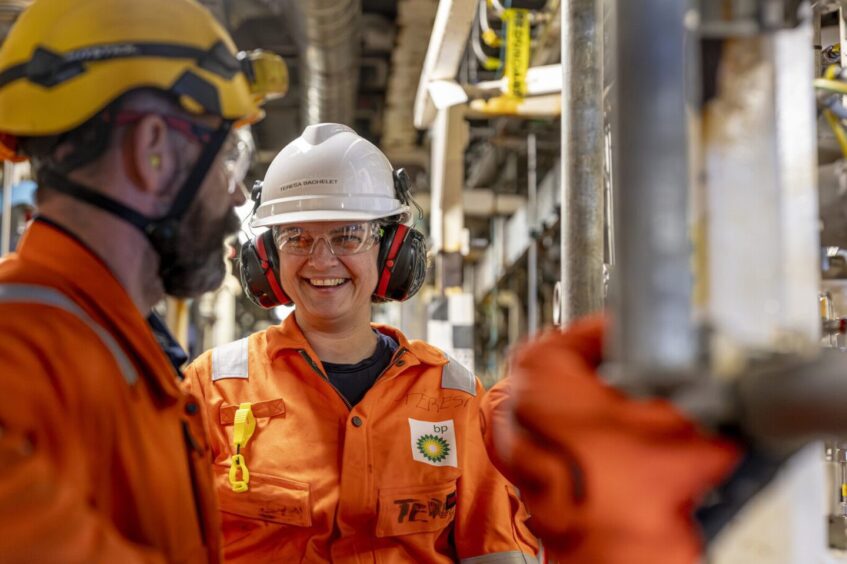
BP (LON: BP) and Neptune have confirmed the start of production at the Seagull oil and gas development, with new flows providing further longevity to a key North Sea hub.
Seagull has been developed by Neptune Energy as a subsea tieback to the BP-operated Eastern Trough Area Project (ETAP) in the central North Sea, around 140 miles east of Aberdeen.
Tapping proved and probable reserves of some 50 million barrels of oil equivalent (boe), the new field could produce up to 25,000 boe per day from its current two wells. A further two wells would see this ramp up to as much as 50,000 boepd in future.
BP says 800 jobs were supported by the project through the development phase, while throughput will help secure the longevity of the ETAP central processing facility (CPF), which hosts 350 full-time roles – 270 offshore and 80 onshore.
Neptune – currently in the process of takeover by Italian major Eni – holds a 35% stake in the field and has led work on the scheme through the development phase, drilling wells and installing subsea equipment.
BP (LON:BP), which owns 50%, will now operate the field through its production life, while partner JAPEX holds the remaining 15% interest.
Development has been on going for some time. Having been formally sanctioned in 2019, subsea work at the project was completed in 2020 and drilling began in early 2021, though the process is understood to have suffered from some Covid-related delays.
Neptune had hoped for start-up in July, though with the deadline elapsed BP bosses told analysts in August first oil would arrive “later” in 2023.
Future for ETAP
Seagull is the first tieback to the ETAP hub in two decades.
Production is routed through a new three-mile subsea pipeline tied into an existing pipeline system, while a new 10-mile umbilical has been installed to link ETAP to Seagull, providing control, power and communications services.
Once processed at ETAP, oil from Seagull is exported through the Forties Pipeline System to Grangemouth in central Scotland and gas to Teesside via the Central Area Transmission System (CATS).
The facility processes production from the BP-operated Machar, Madoes, Mirren, Monan, Marnock, Mungo and Seagull fields.
The ETAP hub came online in July 1998, and has now surpassed its initial production life expectations of 20-25 years thanks in part to a $1 billion investment in 2015 which extended its future into the 2030s.
A further project – Murlach, a 26m barrel redevelopment of the Marnock-Skua field – also secured regulatory approval in September 2023, with production expected online via ETAP in 2025.
It also comes days after the operator confirmed plans to invest in a new gas pipeline link on Shetland to bring supplies ashore from the Clair field.
‘Fantastic milestone’
First oil was hailed by the company and its partners.
BP SVP for North Sea Doris Reiter said: “BP has been safely operating in the North Sea for nearly 60 years, delivering a reliable flow of energy, supporting thousands of jobs and a world-class supply chain. We plan to keep doing this by investing in our existing oil and gas infrastructure, like at ETAP, which has been a cornerstone of our North Sea portfolio for a quarter of a century.
“The start-up of Seagull is a fantastic milestone that demonstrates how BP is investing in today’s energy system and, at the same time, investing in the energy transition.
“A key focus for BP in the North Sea is to identify projects which can be developed efficiently using existing infrastructure. Seagull is a great example of this, and my thanks go to the committed teams at bp, our joint venture partners and supply chain colleagues who worked so hard to safely deliver this important project.”
Neptune UK country director Alan Muirhead said the development was “an excellent example of what can be achieved through close collaboration.”
“From the beginning, the partners have taken an innovative approach to ensure we can collectively maximise the recovery of domestic energy resources while extending the life of existing subsea infrastructure to reduce development costs.”
JAPEX managing executive officer Tomomi Yamada added: “JAPEX is truly delighted with the safe and successful start-up of the Seagull field.
“We believe this commencement in production will benefit our business expansion strategy in the North Sea and realise the significant potential of the UK Continental Shelf. It is our pleasure to strengthen our partnership with BP and Neptune through the project.”
Supply chain boost
The project was also welcomed as a boon to local supply chains – not least by engineering group Wood, whose executive president of projects Craig Shanaghey, noted: “As part of Wood’s $170m scope on the development, more than 300 of our people across the UK and offshore played a key part in reaching this milestone by successfully delivering engineering, procurement, construction and commissioning services.
“Seagull is a great example of teamwork, trust and can-do attitude working across all stakeholders, demonstrating industry and supply chain collaboration, whilst ensuring the delivery with a focus on safe, reliable and efficient delivery.
“This enabled the delivery of energy security by successfully repurposing existing infrastructure in one of the largest and most complex fields in the North Sea.”
Offshore Energies UK chief executive David Whitehouse also said the UK should “be proud” of the development.
“It’s also a much-needed boost for our energy security and for the skilled, highly collaborative people working across the project’s supply chains up and down the country.
“Projects like this ensure we continue to support the homegrown energy, jobs and expertise we need to accelerate the transition to a low carbon future. This innovative use of existing infrastructure is world-class sustainability in action – investing in today’s energy systems and at the same time investing in the energy transition – and shows what can be done when people work together to build long-term success.”
Recommended for you

 © Supplied by BP
© Supplied by BP © Supplied by BP
© Supplied by BP